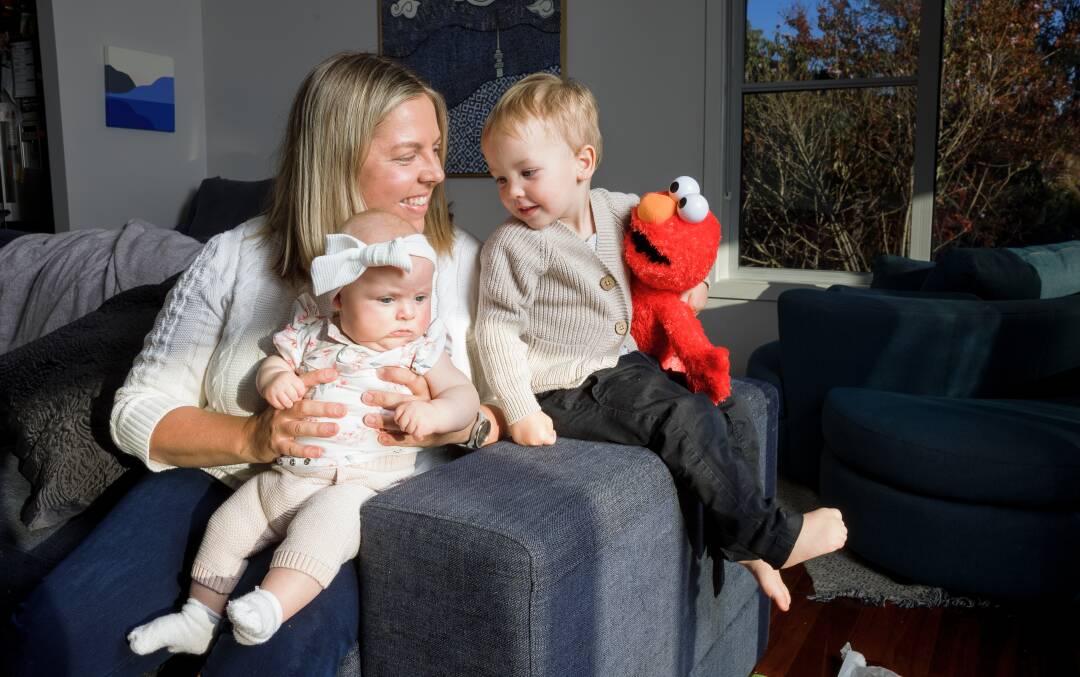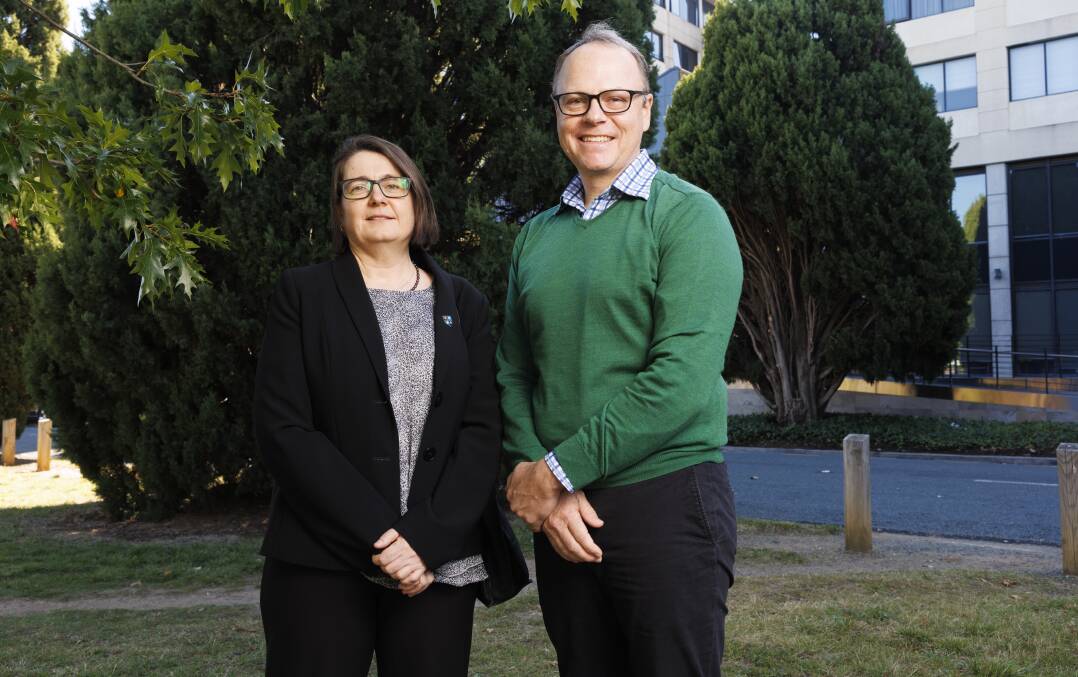Fertility treatments can cost people thousands and thousands of dollars.
These high costs can often present an insurmountable barrier for people wanting to have children.
But the cost of fertility treatments in Canberra will form a part of the October election with the opposition promising payments of up to $2000 towards the cost of treatments.
The government is expected to return serve with work already under way on a policy to make treatment more affordable.
Sarah Dunbar, who has had two children conceived through IVF and began treatment in 2019 through IVF Australia, said any amount of extra support would make a huge difference for families.

She said financial help could ultimately mean whether a person would pursue treatment.
"I think any form of financial support is fantastic. It's hugely expensive. I'm fortunate that I could afford it but I know a lot of people just don't even embark on the journey because it is so expensive or it can just take so long," Ms Dunbar said.
"$2000 is not the whole cost but when you're talking about multiple rounds and a significant amount of money I think every little bit really makes a difference and it could mean someone undertaking it or not undertaking it."
Ben Stephens, an IVF Australia obstetrician and gynaecologist, said IVF is often a last resort for families and payments for people undergoing fertility tests were important.
Dr Stephens pointed to Canberra having the oldest median age for new mothers at 32.6 years, meaning the city was more likely to have people seeking fertility treatments than other areas.
"We have the oldest first time mum age in Australia so a women's fertility does start dropping from the age 35. Not dramatically but there is a fertility issue with egg quality after 35," he said.
"It just paints picture that the demographic we have, with working professional women and couples who are a lot older than out cohorts in other states and are getting closer to where fertility starts shifting as well."
Under the Liberals policy, the rebates will cover out-of-pocket expenses of up to $2000 when undergoing IVF or certain assisted reproductive technology and up to $1000 for intra uterine insemination.
This would include a maximum $250 rebate for out-of-pocket expenses for initial fertility tests from the same provider so a person could determine their suitability for treatment.
"This is open for all Canberran families that have fertility challenges," opposition health spokeswoman Leanne Castley said.
"We hear from families who are struggling with infertility and believe that's the biggest cohort who do need assistance and it's just a small way we can help those families who are struggling with infertility."
But the Liberals policy will only be available to those who are medically infertile. Same-sex couples or individuals undergoing IVF or IUI treatment will need to be medically infertile in order to access the rebate.
Health Minister Rachel Stephen-Smith slammed the Liberals' eligibility rules, saying the policy currently being worked on by the government would include everybody undergoing treatment.
"This is an astonishing example of the Canberra Liberals prioritising healthcare for some over others based on ideology," she said.

"ACT Labor believes in equal access to healthcare for people of all genders and sexualities.
"We are continuing to explore options to make assisted reproductive technology more affordable, and Canberrans can be assured that any approach we take will extend to same-sex couples and single parents."
NSW has a similar scheme, allowing residents to submit a claim for a $2000 rebate.
Ms Stephen-Smith said the government had committed to exploring options to make fertility treatment more affordable and there was work ongoing in this space. She said ACT Labor would have more to say about their policy in the territory budget and during the election campaign.
She also pointed to other government policies around fertility treatments.
"We have also included access to five days of assisted reproductive leave per year for ACT public servants, allowing employees going through IVF or other assisted reproductive processes time to attend appointments and procedures without having to access their other leave entitlements," Ms Stephen-Smith said.
The opposition say it is not considering a public IVF clinic for Canberra as part of its policy.
"I think it's a very involved process and these private clinics work really hard to help Canberrans at all levels where they are so I don't think it's something I am looking into at the moment," Ms Castley said.
"My goal here is just to give that initial help for families going through any kind of fertility journey because they are infertile."







